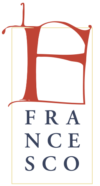The aspiration to universal science
Encyclopedic Knowledge
Cultural effervescence and new ideas characterized the Order from the beginning, so much so that the tree of knowledge, nourished by the inspiration of the Canticle, grows and prospers on the vivacity of the cultural and scientific interests of Francis’s sons, blossoming into many and astonishing blooms.
The Franciscans and the encyclopedic system
This section is dedicated to the encyclopedic approach to knowledge and the fascination that the idea of uniting the principles of all sciences into a single corpus had among the Franciscans, classifying manual and intellectual activities in an attempt to make knowledge accessible to the highest number of people.
Medieval encyclopedias
Among the most significant examples of medieval encyclopedism are the texts of Bartholomew Anglicus and Ramon Llull. Bartholomew, known as “magister de proprietatibus” from the name of his most famous work, was the author of an important encyclopedic compilation, considered an excellent general introduction to knowledge, suitable for teaching and therefore used in the Order’s schools until the early 17th century.
Ramon, on the other hand, in his work Arbor scientiae, uses the suggestive image of the tree as a model of the rational structure of the world, in an extraordinary attempt to create a universal method and science to understand the laws governing the entire reality.
Modern encyclopedias
During the Renaissance period – as evidenced by some of the texts on display – encyclopedism underwent a first transformation and, thanks to the progressive refinement of the art of printing, presented itself in a rich guise of new graphic and illustrative feats, as well demonstrated by the works of Gregor Reisch, Giovanni Paolo Gallucci, and Pietro Gregorio Tholosano.
The first Italian encyclopedist: Fra Vincenzo Coronelli
On display here is the Universal Sacred-Profane Library of the Conventual Minor Friar Vincenzo Coronelli, which, although incomplete, can be considered the first great encyclopedia in the Italian language. The work aimed to provide people with basic, useful, and updated information in various disciplines.
Coronelli was a geographer, scientist, historian, encyclopedist, far-sighted publisher, as well as a map designer and skilled globe maker. It is no coincidence that he is considered a pinnacle figure of Franciscan encyclopedism.

